
 Foreign Policy, o alta revista de-a lui Dinu Patriciu condusa de piticul lui de gradina, Andrei Plesu, se lanseaza azi intr-o conferinta la Cotroceni. Muzeul Cotroceni. Ultimul numar am inteles ca este axat pe Rusia. Alaturi de Click si Dilema lui Plesu, anul trecut trustul de presa KazMunaiGaz-Rompetrol si-a mai adjudecat si aceasta publicatie, altfel prestigioasa pe plan international. La noi insa, ca ghiuluri ruginite la mana lui Patriciu, in echipa editoriala se gasesc la gramada, adapati din galeata sa cu petro-ruble, fosti ministri de Externe si actuali demnitari cu rang inalt, cum ar fi Mihai Razvan Ungureanu, aflat totusi intr-o oarecarea incompatibilitate, ca sef al SIE si angajat al unei companii ca si rusesti. Dar, nema problema! Daca-i bal, si inca nu-i inca noiembrie, bal sa fie... Pentru azi, Patriciu a invitat in curtea Cotrocenilor, ca sa-i ia fata lui Basescu, si analisti care dupa ce au parasit culcusul cald de aici au devenit cotati ca fiind versati peste ocean. Cum ar fi Vladimir Socor. Ce te faci insa ca in chiar buletinul electronic al lui Socor, compania Gazprom, unde urmeaza sa ajunga si oficial Rompetrol, este evidentiata ca fiind interesat in monopolizarea tuturor sectoarelor strategice din Romania. Care sa fie miza, oare? O pune Patriciu de o noua "punte"?
Foreign Policy, o alta revista de-a lui Dinu Patriciu condusa de piticul lui de gradina, Andrei Plesu, se lanseaza azi intr-o conferinta la Cotroceni. Muzeul Cotroceni. Ultimul numar am inteles ca este axat pe Rusia. Alaturi de Click si Dilema lui Plesu, anul trecut trustul de presa KazMunaiGaz-Rompetrol si-a mai adjudecat si aceasta publicatie, altfel prestigioasa pe plan international. La noi insa, ca ghiuluri ruginite la mana lui Patriciu, in echipa editoriala se gasesc la gramada, adapati din galeata sa cu petro-ruble, fosti ministri de Externe si actuali demnitari cu rang inalt, cum ar fi Mihai Razvan Ungureanu, aflat totusi intr-o oarecarea incompatibilitate, ca sef al SIE si angajat al unei companii ca si rusesti. Dar, nema problema! Daca-i bal, si inca nu-i inca noiembrie, bal sa fie... Pentru azi, Patriciu a invitat in curtea Cotrocenilor, ca sa-i ia fata lui Basescu, si analisti care dupa ce au parasit culcusul cald de aici au devenit cotati ca fiind versati peste ocean. Cum ar fi Vladimir Socor. Ce te faci insa ca in chiar buletinul electronic al lui Socor, compania Gazprom, unde urmeaza sa ajunga si oficial Rompetrol, este evidentiata ca fiind interesat in monopolizarea tuturor sectoarelor strategice din Romania. Care sa fie miza, oare? O pune Patriciu de o noua "punte"?IS GAZPROM MANEUVERING TO OBTAIN ROMANIAN ALUMINUM?
Romania’s important aluminum industry has long held an attraction for Russian companies. Two years ago their efforts came to the attention of the Romanian Intelligence Service (Serviciului Român de Informaţii), the SRI, which viewed these initiatives with growing concern.A 2006 memo from the SRI stated that Russian oligarch Oleg Deripaska had made an attempt to take over the entire Romanian aluminum industry, when the state-owned aluminum enterprises Alro Slatina, Alprom Slatina and Alum Tulcea became slated for privatization by the government of Adrian Nastase.
Deripaska, however, failed to win the tenders. The Romanian aluminum companies, Alum Tulcea and Alro Slatina, were sold to the Marco group, established by the controversial commodities trader Marc Rich and later acquired by the Russian/Israeli magnate Vitaliy Machitski.The SRI memo notes that the Marco Group is controlled Conef Energy SRL, which in turn is owned by Nonef SA, also a part of the Marco Group. Conef acts as an intermediary in the purchase of gas from Gazprom. The SRI claimed that Machitsky owned 99.97 percent of Conef.
The Romanian dealings of Conef do not appear to be totally innocent. Machitsky attempted to keep his 2002 bid to buy ARLO Slatina hidden behind a web of off-shore companies he controlled. His lawyer, David Lee Sherman, explained this by saying, "It would be better to negotiate with the Romanian government through a U.S. or Israeli connection, rather than a Russian company, because of the perceived antipathy of Romanians to Russians."
Deripaska, however, failed to win the tenders. The Romanian aluminum companies, Alum Tulcea and Alro Slatina, were sold to the Marco group, established by the controversial commodities trader Marc Rich and later acquired by the Russian/Israeli magnate Vitaliy Machitski.The SRI memo notes that the Marco Group is controlled Conef Energy SRL, which in turn is owned by Nonef SA, also a part of the Marco Group. Conef acts as an intermediary in the purchase of gas from Gazprom. The SRI claimed that Machitsky owned 99.97 percent of Conef.
The Romanian dealings of Conef do not appear to be totally innocent. Machitsky attempted to keep his 2002 bid to buy ARLO Slatina hidden behind a web of off-shore companies he controlled. His lawyer, David Lee Sherman, explained this by saying, "It would be better to negotiate with the Romanian government through a U.S. or Israeli connection, rather than a Russian company, because of the perceived antipathy of Romanians to Russians."
Machitsky and his former partner, Alexander Krasner, according to a 2005 transcript of the proceedings in the Queens Bench Division, a commercial court in London, conceived a plan drafted by Machitsky which they referred to by its Russian name as the "Vostok Plan," or the "Eastern Plan."
The "strategic objective" of the "Vostok Plan" was defined as the creation of a vertically integrated operation that would give the men power over everything from a plant producing raw materials (SC Alum SA, which Machitski's enterprises acquired), to a power plant, to a plant producing primary products (ALRO) to a plant for manufacturing products out of the primary products (Alprom of Romania). The plan also detailed the participants and their strategy including lobbying people in positions of political influence, the head of consulting banks and the state privatization agency.
The Romanians were concerned that Machitsky had not only acquired ownership in the country’s aluminum industry but apparently controlled a substantial percentage of Romania’s gas imports from Russia.On April 2, 2007, Gazpromexport, Gazprom’s foreign trading subsidiary headed by Alexander Medvedev, signed a contract with Conef to sell Romania up to 2 billion cubic meters of gas annually from 2010 to 2030. Under the contract the aggregate supply volume would reach 42 billion cubic meters.
In April 2007 Gazprom signed long term gas supply contracts with three Romanian gas companies--Romgaz, Transgaz and Conef. The contracts provide Gazprom with long-term access to gas shipping facilities in Romania. At this time Gazprom also agreed to increase gas deliveries to the Alro Slatina aluminum plant owned by Machitski’s Marco Group. The price Gazprom charged Conef for this gas was classified a "commercial secret.
"Since becoming President of Romania in May 2007, Traian Basescu has issued several warnings about the Russian expansion into Romania. His main target has been Gazprom: "Gazprom is more efficient than the Red Army in making Europe dependant on Russian resources," Basescu stated last year.
Basescu has often indicated his support for energy projects that bypass Russia, pointing to reports from analysts that European gas imports will grow from the present 525 billion cubic meters (bcm) to 740 bcm by 2030. However, recent estimates indicate that the EU has taken significant steps toward diversifying its gas supplies, and Norway is now poised to become the EU’s largest provider of gas. This, along with rising LNG imports from North Africa and growing Russian domestic consumption, might negate Gazprom’s dreams of controlling the European gas market.The Romanian gas market could well feel a financial impact from this development. First and foremost it stands to lose millions of dollars in transit fees for Russian gas transiting its territory to Greece and Turkey.
Machitsky’s Conef, on the other hand, seems poised to take advantage of the allegedly sweetheart deal it struck with Gazprom and will be able to produce aluminum below the costs of other European manufacturers in the coming years.
The question that remains unanswered is why did Gazpromexport agree to this separate deal? Is there a backroom agreement between Gazprom management that Conef will sell them the Romanian aluminum business in the near future?
Can the Romanian government prevent such a maneuver?
("Evenimentul Zilei," January 26, 2007; www.hotnews.ro, April 14; Krasner v. Machitski and others Queen’s Bench Division (Commercial Court) [2005] EWHC 1787; Kommersant; RIA Novosti, Central Europe Digest).
Roman Kupchinsky
Roman Kupchinsky is an organized crime and terrorism analyst
He can be contacted at KupchinskyR@GMail.com
Roman Kupchinsky
Roman Kupchinsky is an organized crime and terrorism analyst
He can be contacted at KupchinskyR@GMail.com


































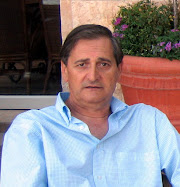
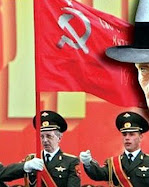




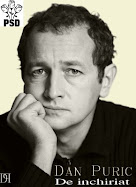





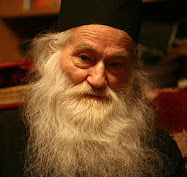






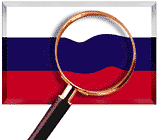








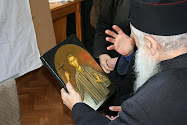
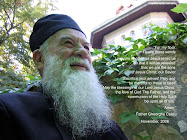


2 comments:
"Foreign Policy, o alta revista a lui Dinu Patriciu..." ... Roncea ... BASTA cu prostiile!!!
Un curajos anonim a postat comentariul naiv de mai sus. Cum nu-mi inchipuiam ca am si astfel de cititori imi permit, din mila, sa le vin in ajutor. Poate poza postata la lansarea FP Romania il ajuta mai mult, daca mintea nu-l duce sa deschida o revista si sa se convinga singur.
Post a Comment